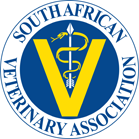Original Research
Causes of gastrointestinal colic at an equine referral hospital in South Africa (1998 - 2007)
Journal of the South African Veterinary Association | Vol 80, No 3 | a201 |
DOI: https://doi.org/10.4102/jsava.v80i3.201
| © 2009 A. Voigt, M.N. Saulez, C.M. Donnellan, B. Gummow
| This work is licensed under CC Attribution 4.0
Submitted: 23 May 2009 | Published: 23 May 2009
Submitted: 23 May 2009 | Published: 23 May 2009
About the author(s)
A. Voigt,M.N. Saulez,
C.M. Donnellan,
B. Gummow,
Full Text:
PDF (335KB)Abstract
The most common causes of gastrointestinal colic at an equine referral hospital in South Africa were determined following retrieval of the medical records of horses admitted during a 10-year study period. The study included 935 horses of which 28 % were admitted after hours. Most horses were Thoroughbreds (54 %), male (57 %), with a mean age of 8.2 years and originated from the Gauteng Province (81 %). Heart rate (98 %), mucous membrane colour (95 %) and auscultation of the abdomen (91 %) were the clinical data commonly obtained at admission. Packed cell volume, total serum protein and white cell count were recorded in 78 %, 75 % and 44 % of horses respectively. Transrectal palpation (93 %), nasogastric intubation (84 %), intravenous catheterisation (74 %) and abdominocentesis (53 %) were the most frequently performed procedures. Medical intervention was performed in 558 horses (60 %). The common causes of medical colic were impactions (39 %), tympany (7 %) and displacement of the large colon (6 %). An exploratory laparotomy was performed in 331 horses (36 %). The common causes of surgical colic were displacement (29 %), impaction (22 %) and small intestinal strangulating lesions (18 %). Death occurred in 3 % of horses, while euthanasia before medical intervention was performed in 4 %. Overall, medical intervention was successful in 93 % of horses and 67 % in horses managed surgically. In conclusion, 55 % of all the equine admissions responded to medical intervention and the recovery rate for horses receiving both medical and surgical intervention was comparable to that reported in other studies.
Keywords
Abdominal Pain; Horse; Medical And Surgical Intervention; Survival
Metrics
Total abstract views: 3602Total article views: 2548
Crossref Citations
1. A retrospective study of gastrointestinal disorders in a predominantly Austrian leisure horse referral hospital population
V. Gunes, A. C. Onmaz, A. Pavaloiu, G. Kaya Karasu, R. van den Hoven
Equine Veterinary Education vol: 34 issue: 9 first page: 467 year: 2022
doi: 10.1111/eve.13500
